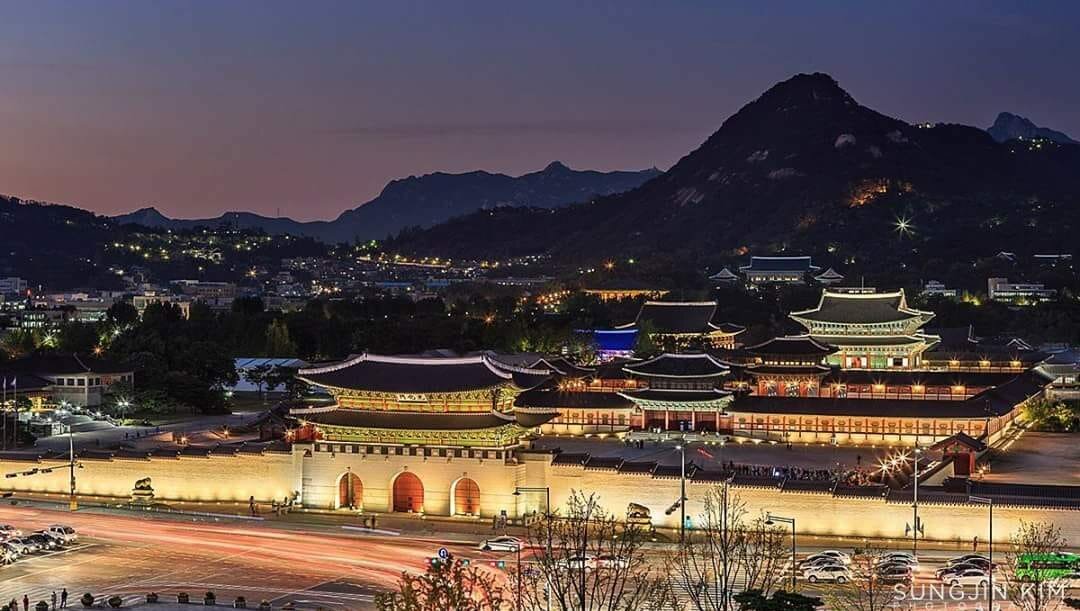Septembris algab Tartu Ülikooli Korea kultuuriklubi ja Vaba akadeemia poolt korraldatav loengusari Korea kultuurist.
 Septembris algab Tartu Ülikooli Korea kultuuriklubi ja Vaba akadeemia poolt korraldatav loengusari Korea kultuurist.
Septembris algab Tartu Ülikooli Korea kultuuriklubi ja Vaba akadeemia poolt korraldatav loengusari Korea kultuurist.
Loengud toimuvad kaheteistkümne nädala jooksul kolmapäeviti, kella 19st-20ni. Loengusari algab 26. septembril ja kestab 12. detsembrini.
Loengud 1-4 ja 10 on eesti keelsed.
Loengud 5-9 ja 11-13 on inglise keelsed.
Loengud on avatud kõigile ja neile saab registreerida Vaba akadeemia kodulehe kaudu. Informatsioon õppemaksu, õppedokumentide jms kohta on samuti leitav Vaba akadeemia kodulehelt: http://vabaakadeemia.ee/
Loengusarja Facebooki leht.
Lektorid
Roland Schimaski on sotsioloog, kes töö kõrvalt teeb lisamagistrikraadi filosoofias, kus ta spetsialiseerub analüütilisele metafüüsikale. Muude asjade hulgas on ta huvitatud ka Ida-Aasia ajaoost ja ühiskondadest. Aprillis 2018 osales ta Korea Uuringute Neljandal Balti Seminaril, rääkides korea keele õppimisest eesti keele emakeelena kõnelejatele. Ta kutsut esinemai ka novembris toimuvale 2018 Rahvusvahelisele Korea Uuringute Biennaalile.
Aeg: 1-4. ja 10. loeng.
Jung-Ran Park received her Ph.D. at Ewha Womans University in Seoul, Korea in 2006. Her doctoral degree in North Korean studies was the first in South Korea, and from 2006 she worked as a senior researcher at Seoul National University. She has led several government budget research projects as responsible and has published books and articles on inter-Korean relations, South Korea’s pop culture, North Korean defectors and so on. Her co-authoring book on Kpop culture in North Korea was selected as one of the most outstanding cultural books of South Korea's Ministry of Culture and Tourism. She has also been the director and playwright for theatrical plays on the Korean Wave with the financial support of the Ministry of Unification of the Republic of Korea. She then worked as a visiting professor at L.N. Gumilyov Eurasian National University in Astana for two years. Since spring 2016, she has been teaching Korean Studies and language at University of Tartu as a KF visiting professor based on the financial support of the Korea Foundation.
Aeg: 5. loeng
Jason Mario Dydynski is a doctoral student in semiotics and cultural studies at the University of Tartu in Estonia. His research interests include concepts of cuteness, cultural perception, and anthropomorphism and their application for marketing, animal conservation, robotics, and product design. His current work focuses on comparing aesthetic preferences and cultural differences between South Korea, The United States, and Estonia.
Aeg: 6-9. ja 11-12. loeng
Loengute kava
26. september 19:00 Roland Schimanski - Korea rahva ja keele päritolu
Kes on korealased? Mis keelt nad räägivad? Kust nad tulid? Kas nad räägivad isoleeritud keelt? Need küsimused ootavad veel vastuseid. Loengus käsitletake erinevaid teooriaid korealaste päritolust ja keelest.
3. oktoober 19:00 Roland Schimanski - Sotsiaalne stratifikatsioon Lõuna-Koreas: ajaloo ja tänapäeva perspektiiv
Loengus käsitletakse sotsiaalse stratifikatsiooni üldiseid konteptsiooni, näiteks sotsiaalne klass, mobiilsustüübid, kapitali vormid jms. Seejärel räägitakse eelmoderse ja tänapäevase Korea sotsiaalsest stratifikatsioonist.
10. oktoober 19:00 Roland Schimanski - Akadeemiline saavutus, intelligentsus ja edukus Lõuna-Koreas
Loeng keskendub intelligentsusele kui võimalikule teele edukuse poole Lõuna-Korea ühiskonnas. Ka räägitakse sellest, kuidas Lõuna-Koreas edukust tajutakse ning akadeemilise saavutuse suurt rolli selles.
17. oktoober 19:00 Roland Schimanski - Sõjavägi Lõuna-Koreas
Kas Lõuna-Koread võib nimetada militaarühiskonnaks? Lõuna-Korea on maailmale peamiselt tuntud läbi nunnu K-pop kultuuri, ent samas kasvab selle riigi rahastus sõjaväele iga aastaga. See loeng räägib Lõuna-Korea ühiskonna tõsisemast poolest. Arutluse alla tuleb Korea poolsaare kaheksjagatus, selle ajaloolised põhjused sõjaväe roll ja mõju Lõuna-Korea ühiskonnale.
24. oktoober 19:00 Jung-Ran Park - South Korea’s Popculture in North Korea : Korean Wave, a wind blowing for reunification
Has South Korea's pop culture such as TV dramas, movies, and music been flowing into North Korea that has long been known as a closed system? If yes, then which (sub)themes of South Korean popular culture have North Koreans come to contact with? And through what kind of channels? This lecture answers these questions and discusses the implications of South Korean pop culture on the road to reunification of the Korean peninsula.
31. oktoober 19:00 Jason Mario Dydynski - The Pottery Wars: historic development of Sino-Korean pottery
This lecture will examine the development of Korean pottery during the Goreyo and Jonseon periods and the effects of Japanese invasion, Mongol rule, and Chinese relations in the development of Korean pottery.
7. november 19:00 Jason Mario Dydynski - Behind Closed Doors: The role of the family, sexuality, and interpersonal relations in modern and historic Korea.
This lecture will review topics such as household gender roles, raising children, leaving the home, family structures, sexuality, LGBT, growing up, and financial independence in modern Korea comparing it to its historical past.
14. november 19:00 Jason Mario Dydynski - A Semiotic Analysis of Korean Aesthetics
This lecture will look at modern aesthetics in design and fashion in Korean by analyzing traditional and western influences in Korean design practice.
21. november 19:00 Jason Mario Dydynski - Girls Generation: Feminism in South Korea
This lecture will examine the development of Korean feminism in comparison to contemporary Western and Non-western forms of feminism in the context of daily life and in pop culture.
28. november 19:00 Roland Schimanski - Lõuna-Korea töölisklass: kuulmata jäänud hääled
Kes on töölisklass? Üks arvukas sotsiaalne grupp, kes jääb sageli suurema tähelepanu alt välja. Selles loengus räägitakse Lõuna-Korea töölisklassist, nende eluteevõimalustest, habitus’est ja väärtustest.
5. detsember 19:00 Jason Mario Dydynski - Everything Cute: a semiotic analysis of cuteness in Korean society and marketing
This lecture will cover the concept and aesthetic of cuteness as it represents itself in Korean society and marketing. It will cover subjects such as Korean beauty, acting cute or aegyo, fashion, design, and perceptions of these topics both in and outside Korean
12. detsember 19:00 Jason Mario Dydynski - The Unreported: a semiotic analysis of victimization in the reporting of sexual assault in South Korea, US, and Estonia
This lecture will explore trends in the reporting of sexual assault, the me-too movement, and power relations through a semiotic perspective by comparing South Korea, The United States, and Estonia.
